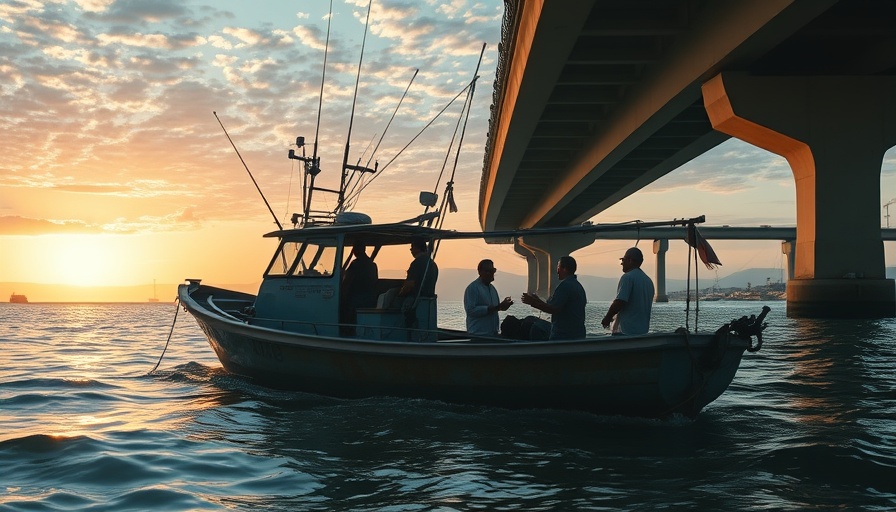
Understanding the Tarpon Coast Incident
A recent encounter between two boaters on the Tarpon Coast has stirred conversations about water safety and etiquette. In the early hours of the morning, a charter captain and another boater exchanged heated words over perceived reckless behavior in boating practices. This incident raises critical questions about not only safety regulations but also how boaters should interact with one another while out on the water.
In FULL VIDEO - Tarpon Coast Fishing Charter Captain Boards Boat & Threatens Kid, we examine a troubling interaction on the waters that raises crucial questions about boating safety and community dynamics.
Why Boating Etiquette Matters
In the world of boating, respect and communication are paramount. The exchange captured in the incident highlights the crucial need for proper conduct on the water, especially in shared spaces like bridges or fishing spots. Understanding local water traffic laws can prevent dangerous situations and tensions from escalating. Boating etiquette informs everything from navigating around anchored vessels to maintaining adequate light visibility, ensuring everyone's safety.
Counters to Common Misconceptions
Many might believe that being a charter captain automatically means one has the right of way on the water. However, this isn’t always the case. All boaters should be vigilant and aware, regardless of their experience level. The importance of visibility cannot be overstated; boat lights must always be on during low visibility conditions, including early mornings and evenings. This incident serves as a reminder that regardless of how often one is out on the water, adherence to safety practices is crucial.
Emotional Responses from the Community
The Tarpon Coast incident sparked not only anger between the two parties involved but also resonated within the local fishing community. Emotional responses highlight the shared values of respect and safety among fishermen and boaters alike. Witnesses to the altercation echoed the sentiment that everyone on the water should be looking out for one another. The camaraderie that typically binds the fishing community was tested during this dispute, leading to discussions about the nature of accountability on the water.
Learning from the Incident
Incidents like this remind us that education is an ongoing process. Local organizations and marine authorities could leverage situations like this to promote better boating practices and foster a culture of safety amongst recreational boaters. With educational campaigns and workshops, boaters can improve their skills and knowledge about rights, responsibilities, and best practices on the water.
What’s Next for the Tarpon Coast Community?
This altercation may serve as a wake-up call for local boaters, pushing for improved discussions around waterway safety regulations. Moving forward, the Tarpon Coast community can play a proactive role by initiating forums or community meetings to discuss safety measures and etiquette. Such initiatives could strengthen the bond within the boating fraternity while ensuring the safety of everyone on the water.
In the spirit of bolstering community ties and consciousness around safety, let’s engage in these conversations and remember the essence of being out on the water: to enjoy and respect our shared space.
 Add Row
Add Row  Add
Add 




 Add Row
Add Row  Add
Add 


Write A Comment